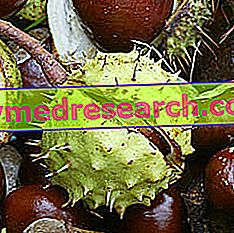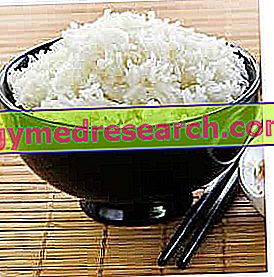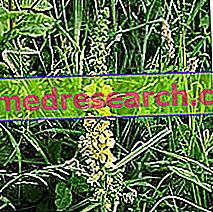See also: Escin and Escin Beta-sitosterol in cosmetics
Escin is the mixture of saponins extractable from seeds (13%), bark (1%) and leaves (0.2%) of horse chestnut, to which it gives the known medicinal properties. Not surprisingly, the various extracts of Horse Chestnut are standardized precisely in escin, and indicate on the label its percentage content to facilitate dosage; on the market, it is also possible to find this isolated fraction of triterpene glycosides, defined precisely as escin, but at the same dose it guarantees a therapeutic effect lower than the total extract.
 |
Horse Chestnut increases capillary resistance and reduces its permeability; therefore it has an anti-edema action, supported by the ability to intervene on the local electrolytic exchange, favoring the removal of accumulated interstitial liquids. This capillarotropic and drainage action, together with anti-inflammatory properties and mild antithrombotic activity, make standardized escin horse chestnut extracts indicated in the presence of peripheral venous insufficiency disorders (swelling, heaviness, pain, itching, etc.), varicose veins and postphlebitic syndromes, hemorrhoids, cellulite and capillary fragility. |
In fact, in the phytocomplex, other active molecules of proven anti-inflammatory action are recognized, such as elucoside (coumarin glycoside), and antioxidant, such as flavonoids (quercetin and kampferol) and procyanidins.
Escin is also contained in some medical specialties, such as the Essaven gel ® ointment, which contains it (1%), together with sodium heparin (10, 000 IU / 100g) and phosphatidylcholine (0.8%). The formulation has the purpose of avoiding local irritation phenomena, often encountered when escin is used externally in concentrations higher than 1% and in the absence of anti-inflammatories or cholesterol derivatives. For internal use, on the other hand, high doses of escin can cause damage to the glomerulus and to the renal tubule; consequently its use, as well as horse chestnut extracts, is contraindicated in the presence of kidney disease or renal failure.
In herbal medicine, for internal use, standardized extracts are used, in order to guarantee a daily dosage of about 100 mg of escin; normally this dose corresponds to 500-730 mg of extract, to be divided into two single assumptions of 250-365 mg, in controlled release formulas to avoid gastrointestinal disorders.
The medicinal indications of escin are the same as those shown in the table to the side; in fact it is used, for external (important massage) or internal use, in the treatment of various types of edema, varicose veins, hemorrhoids, cellulite, bruises and bruises, thanks to its ability to increase capillary resistance and reduce its permeability. Escin is also indicated in the presence of chronic venous insufficiency, thanks to its anti-inflammatory and venotonic effects (it increases venous contractility, reducing blood stagnation in the lower limbs and favoring its return to the heart). Therefore, the total extracts of standardized horse chestnut, and the same escin, can help in the presence of swelling and heaviness, tiredness or itching in the legs.



